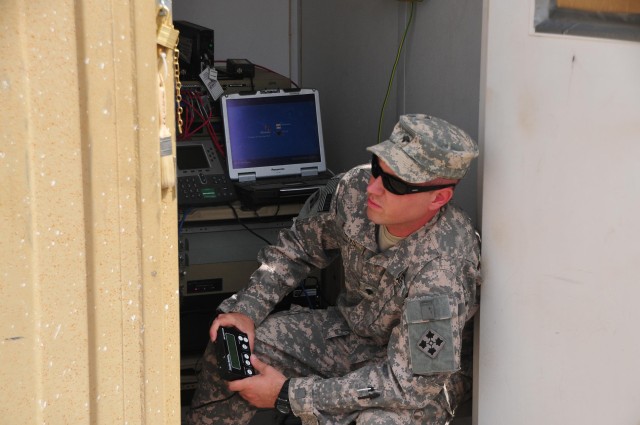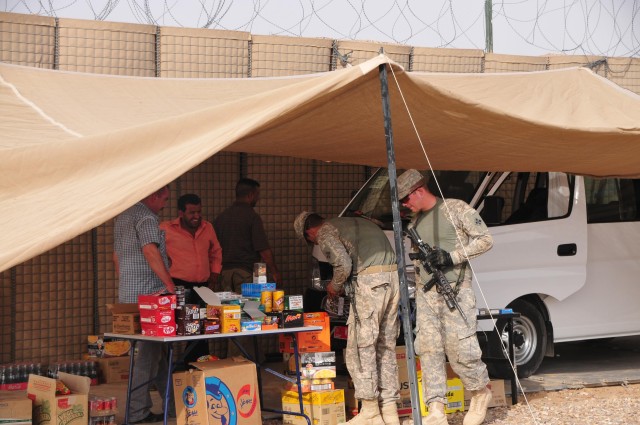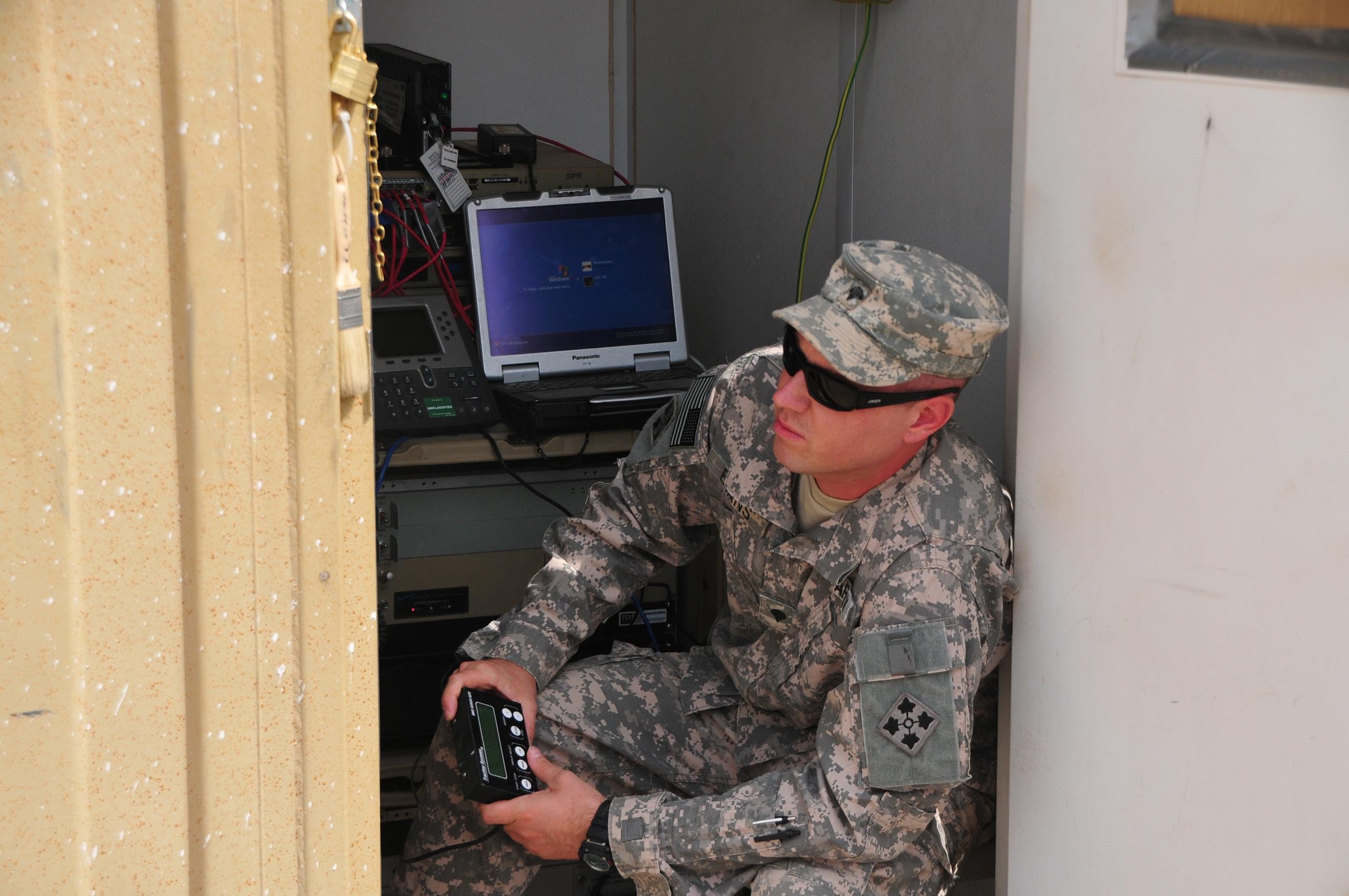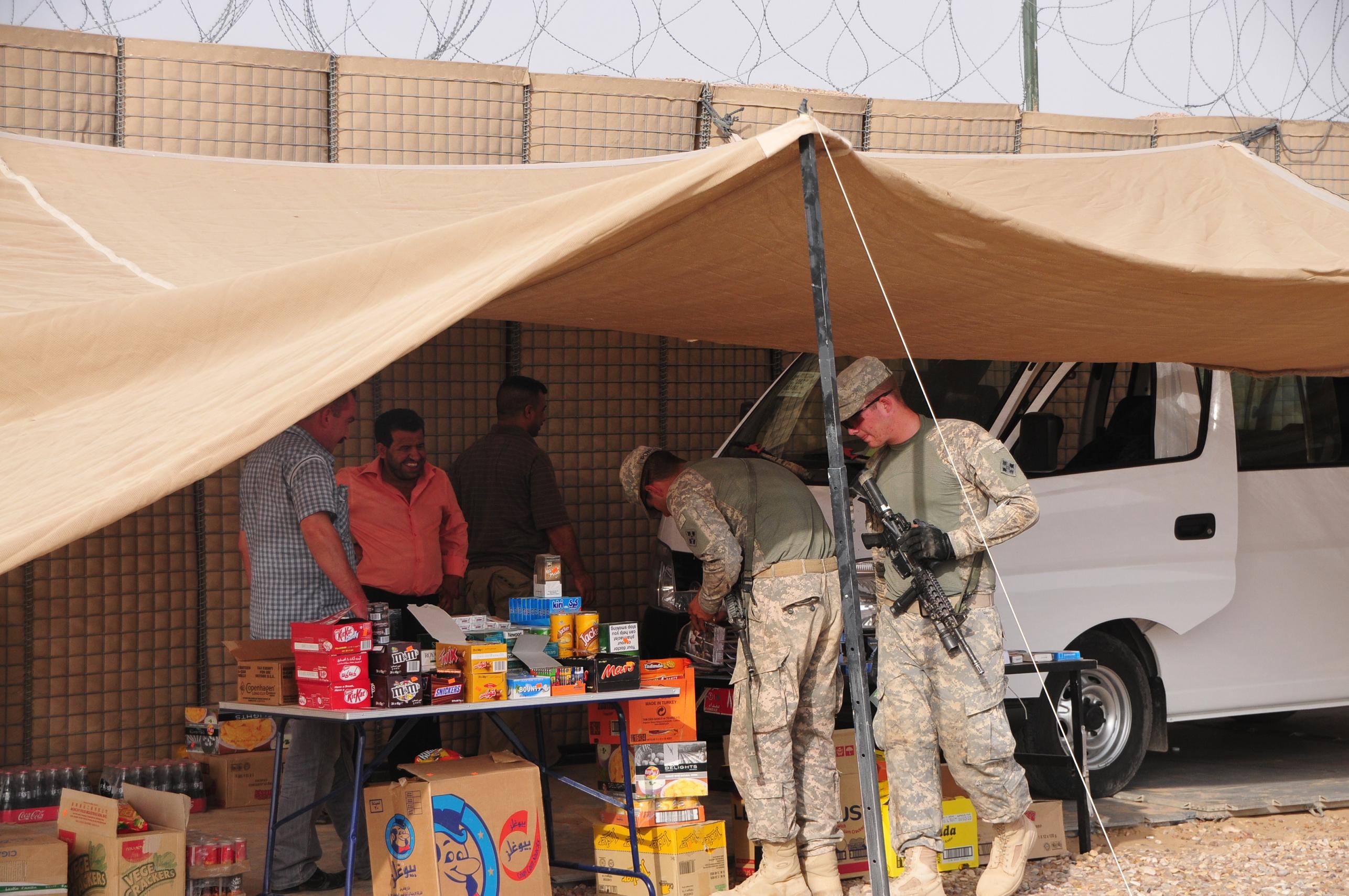The Soldiers on Joint Security Station Al Tib live less than a quarter-mile from the Iraq-Iran border and more than 40 miles away from their supporting military camp.
The station is currently occupied by Troop A, 4th Squadron, 10th Cavalry Regiment, 3rd Brigade Combat Team, 4th Infantry Division deployed out of Fort Carson, Colo. The Soldiers arrived in early April and immediately made it their own.
"The place was already somewhat established, and it wasn't too bad when we first showed up," said Spc. Derrick Fesler, a cavalry scout with Troop A, 4th Sqdn., 10th Cav. Regt. from Sacramento, Calif., who compared this experience with his last deployment, which was also at a JSS.
"We already had tents and things like that setup with basic living conditions. That was really the main difference to me compared to last time," he said.
Even with the basics in place, there was still a lot of work to be done.
"When we first got here, we were constantly building something," said Staff Sgt. Matthew Saylor, a platoon sergeant with Troop A, 4th Sqdn., 10th Cav. Regt., also from Sacramento, Calif.
"Most of the improvements have been in regards to force protection, like enhancing the towers, putting in different optical systems such as night vision and building up the security of the towers with sandbags and ballistic plating," Fesler said.
When the unit arrived, the towers were little more than open platforms.In addition to force protection measures, over the past few months, Soldiers have installed a new shower trailer, repaired the doors and hinges on the handmade latrines, and built walls inside the tents, converting them from open bays to cubicle-like rooms.
Due to the remote location, the Soldiers still have to make a few concessions. Without a sewage system or sanitation contract, the Soldiers must take care of their own trash and waste. They use field sanitation kits called Waste Alleviation and Gelling bags in conjunction with existing outhouse-type structures. All of the waste is burned at a safe distance from the station.
"It was definitely different using the WAG bags," said Spc. David Evans, signal support specialist, Company B, 3rd Brigade Special Troops Battalion, 3rd BCT, 4th Inf. Div. "It's not bad though. I actually like the WAG bags better than the portable toilets. It helps eliminate a lot of the smell and, of course, the insects. I think it's a lot more sanitary."
Although JSS Al Tib is in a remote location, it's definitely not alone. The unit shares a perimeter wall with the headquarters for Iraq's 4th Battalion, 10th Department of Border Enforcement, which conducts anti-smuggling operations and controls the cross-border traffic between Iraq and Iran.
The Soldiers of Troop A, 4th Sqdn., 10th Cav. Reg., have been working with Border Transition
Teams and supporting the DBE to make sure they are fully trained and have the support they need to protect the border. Saylor said maintaining the border is a tough job with such a large area to secure, but the Iraqis are well-equipped to get the job done.
"We are getting them trained up on everything from customs type work, vehicle searches, and personnel searches," Saylor said. "We even have some guys up here teaching them how to track personnel and read footprints, so they can follow the routes that are being used for smuggling."
The two units recently worked together in planning an operation to find a weapons cache with DBE troops in the lead during the mission.
Capt. Richard Smith, executive officer for BTT Phoenix and native of Lumberton, N.C., said the Iraqis did well following techniques U.S. forces taught them and directing the Iraqi and U.S. forces during the operation.
"These kinds of things really help to develop a strong partnership and confidence," Smith said.
Those relationships become very important with 100 people living and working in an area that is only 100 by 150 meters.
"With such a small area, there's really no place you can go to just get away, and things can get a little tense sometimes," Fesler said. "Everyone here has to learn to live with each other, and I think that definitely brings people closer together and builds a pretty tight-knit brotherhood."
Related Links:
The 3rd Brigade Combat Team, 4th Infantry Division Facebook Page




Social Sharing